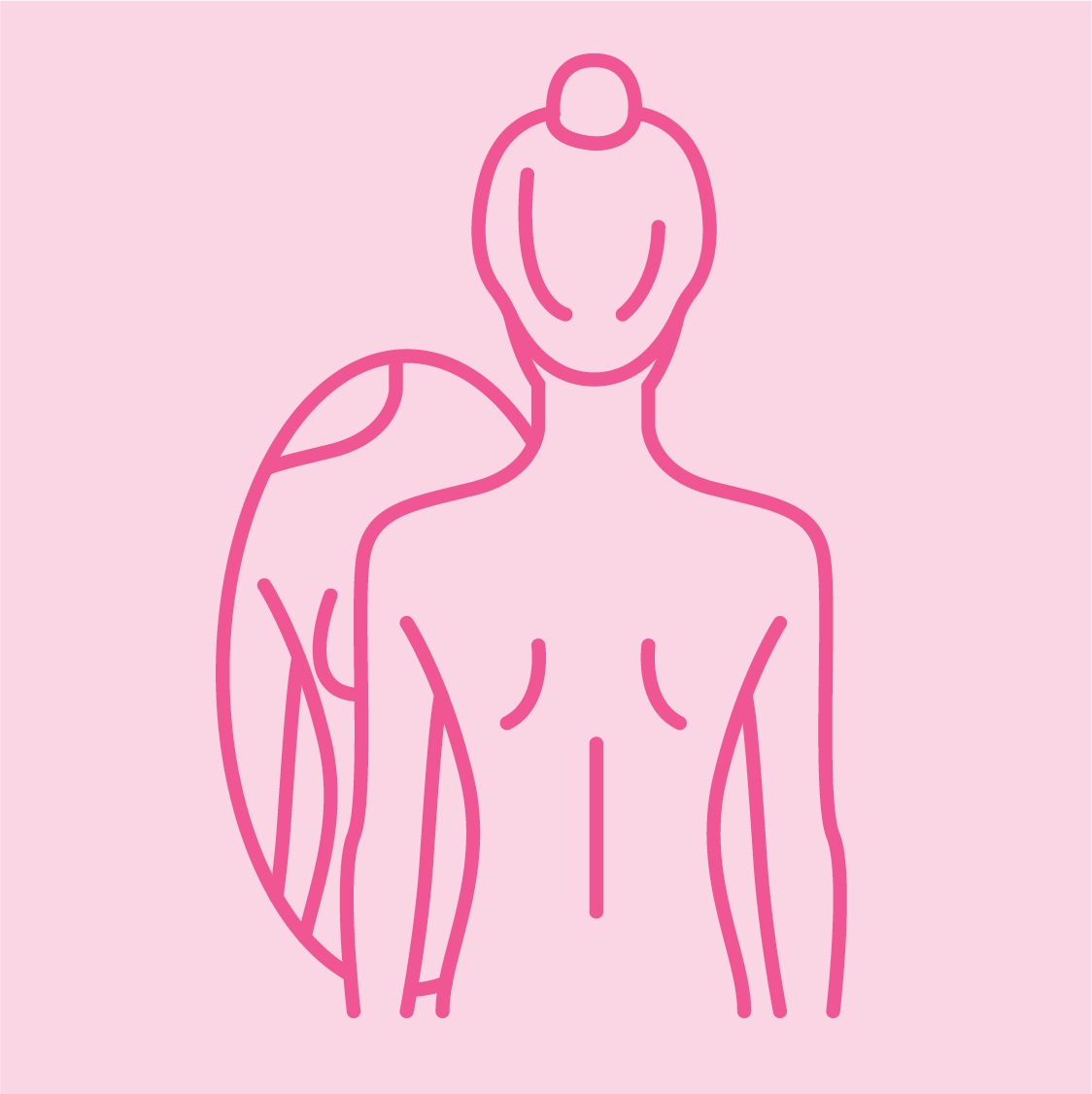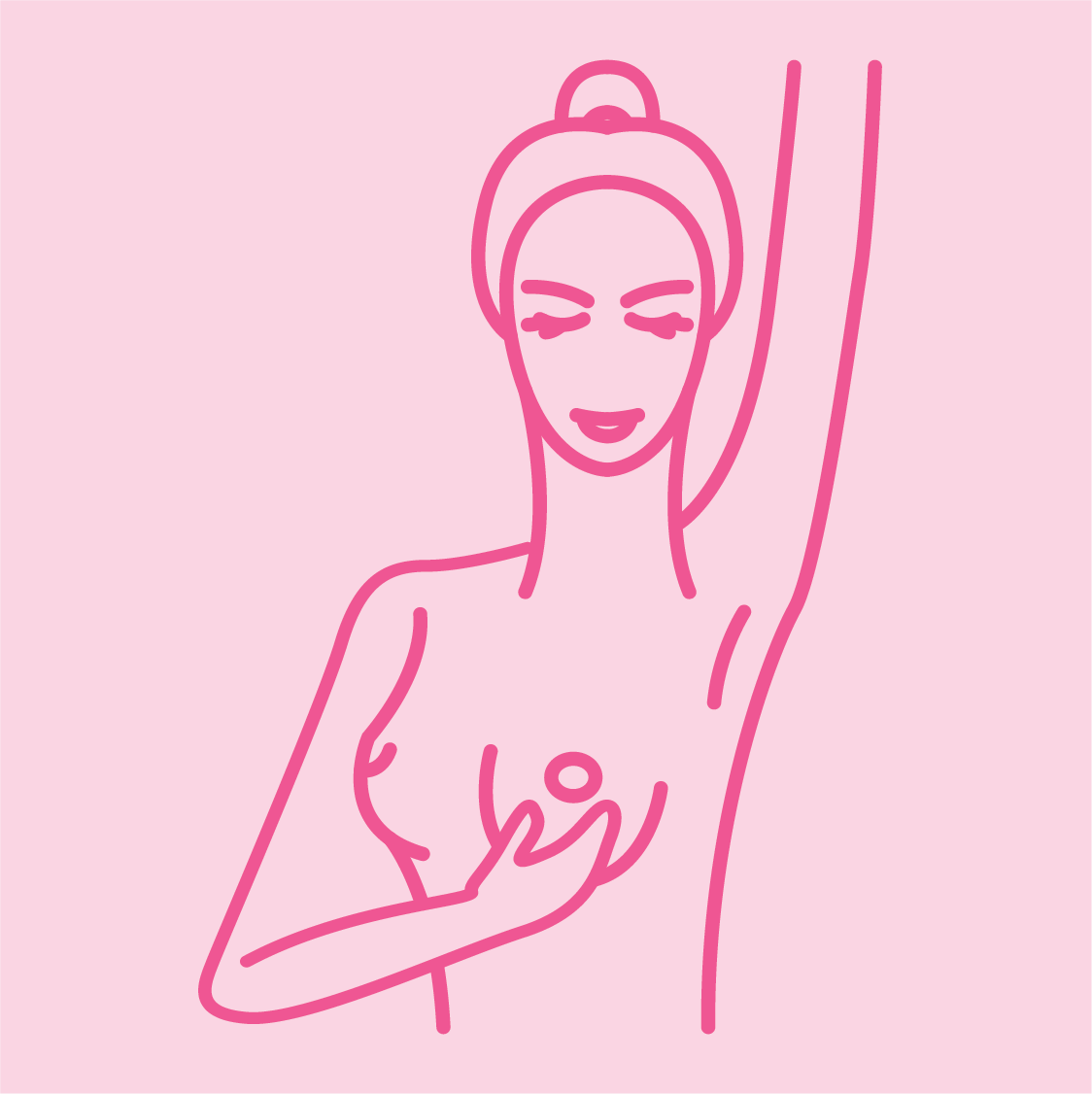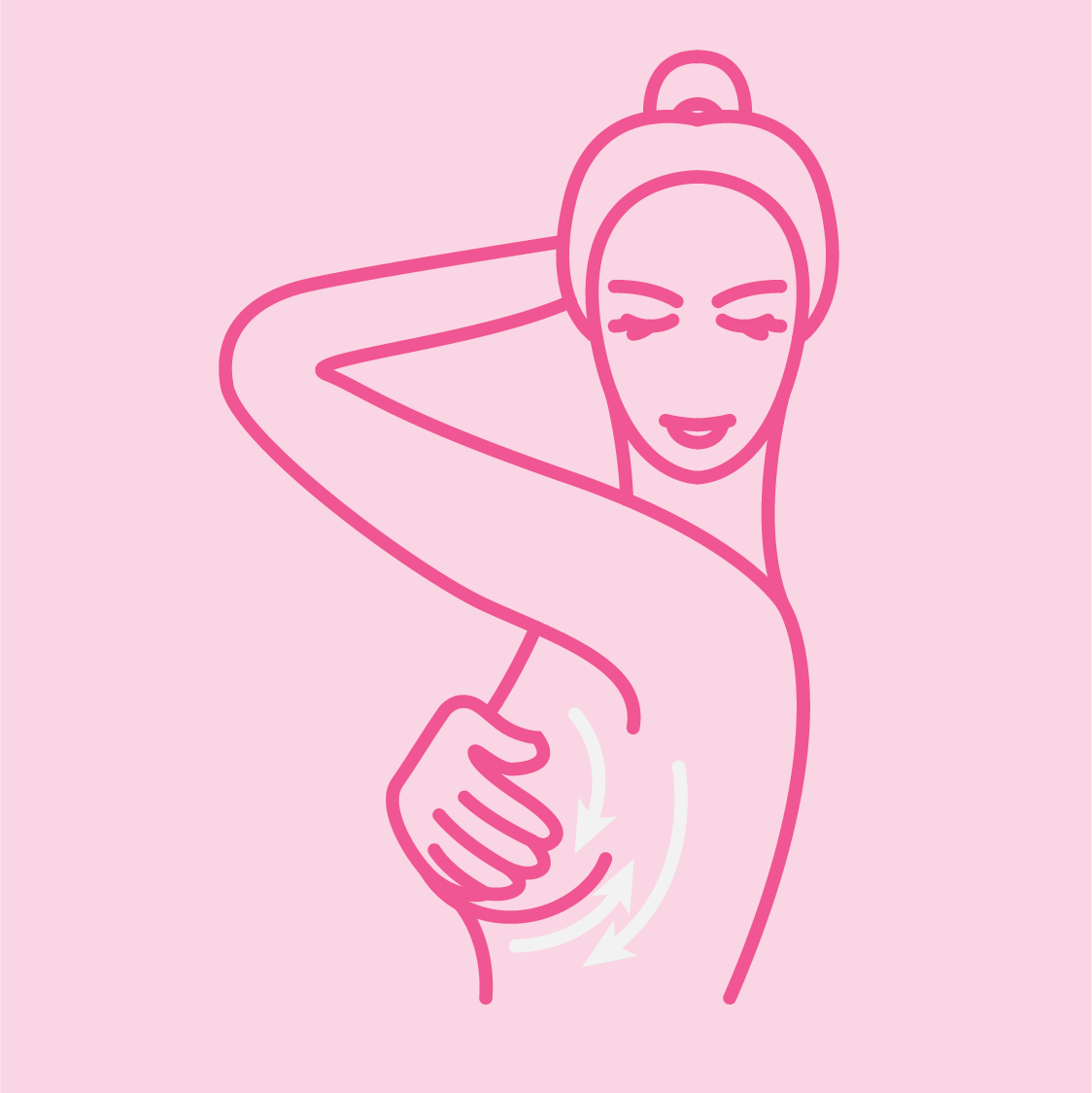Resources and Education
The Sydney Breast Cancer Foundation is dedicated to increasing awareness and supporting women and men with breast cancer. Find out more below about breast cancer support, education, research and advocacy.
The 3 Step Breast Check
Are you Breast Aware? Do you have a detailed look and feel once a month for any signs of change?
Self-breast examinations could increase the chances of early detection and diagnosis, and results have shown that such early detection leads to an increase in survival rates. You know your breasts better than anyone else so if you don't already check - now is the time to start. Early detection is the best prevention. Don't leave it until it's too late.
“Forty percent of diagnosed breast cancers are detected by women who feel a lump, so establishing a regular self breast examination is very important.” says Dr Cindy Mak, Director of Breast Services at Chris O'Brien Lifehouse
While mammograms can help you to detect cancer before you can feel a lump, self breast examinations help you to be familiar with how your breasts look and feel so you can alert your healthcare professional if there are any changes.
1 LOOK

Place your hands at your sides and visually examine your breasts in the mirror, checking for anything which is not normal for your breasts – LOOK for changes in colour, size or shape, any dimpling of the skin or “pulling-in” of the nipple.
2 LIFT

Put your hands on your hips, push your shoulders forward to flex your chest muscles and finally, raise your hands over your head, looking again for any changes with each movement. LIFT one hand up and place it behind your head.
3 FEEL

Using the pads on your fingers of your opposite hand, FEEL in small circular movements and examine all areas of your breast for anything unusual. At first, feel lightly, checking for anything near the surface. Repeat, this time press firmly, feeling for anything deeper. Be consistent and ordered in the direction you check, making sure to check the entire breast, continuing up to your collarbone and out to the armpit.
If you do find something, or notice any changes in your breasts, see your GP immediately. Self-examination should be done in addition to, and not as a substitute for yearly breast examinations by your GP, and screening mammograms every two years (these are available free of charge through BreastScreen NSW by calling 13 20 50). It's important to remember that the vast majority of breast changes aren't cancer, but visit your GP as soon as possible anyway to see if further testing is needed.
It is designed to hang in your shower as a reminder to be BREAST AWARE.
The 3 Step Breast Check Shower Card is available free of charge from SBCF.
Your risk and breast cancer
Today women read and hear a lot of information about risk of breast cancer. Get the facts on the risk factors of breast cancer..

Useful sites for Breast Cancer information
There is a great deal of information on the internet about breast cancer. Whilst we suggest the following reputable sites as a good place to start sourcing information, we strongly recommend your speak with your breast cancer doctor or nurse about the relevance of any information you find, to your own particular situation.
Breast Cancer Network Australia (BCNA)
A comprehensive source of information and reference material for newly diagnosed and secondary breast cancer patients.
BreastScreen NSW
BreastScreen NSW is a free government funded breast screening service for all women aged 50+ years which aims to detect breast cancer in its early stages. The program is delivered by nine Screening and Assessment Services, which are located and managed within Local Health Districts.
Breast Cancer in Men
Cancer Australia has launched a Breast Cancer in Men website This website is for men with breast cancer, their families and friends and anyone else who would like to know more about breast cancer in men. Breast cancer is uncommon in men, accounting for less than 1% of all breast cancers.
Cancer Council Australia
Evidence based cancer information on prevention, research, treatment and support provided by Australia's peak independent cancer authority.
Chris O'Brien Lifehouse
Chris O`Brien Lifehouse takes a multidisciplinary approach to cancer care, bringing together a wide range of skilled doctors, nurses and allied health professionals to provide personalised care to patients.
Look Good Feel Better
A free national program to help women manage the appearance of the related side effects of therapies.
YWCA Encore
Encore is an exercise program (based around land and pool exercises) designed specifically for women who have experienced mastectomy, lumpectomy or breast reconstruction surgery at any time in their lives.
Australian New Zealand Clinical Trials Registry
A comprehensive source of information about clinical trials being conducted.
Australian Institute of Health & Welfare
The Australian Institute of Health and Welfare (AIHW) is Australia's national agency for health and welfare statistics and information.
Tania's Story »“I can’t know the future..., but I’m here right now”
Tania Lambert